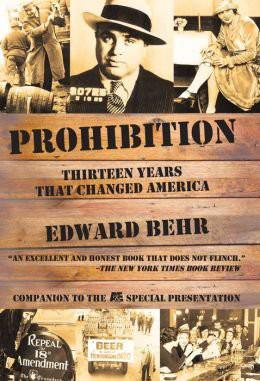

Most ebook files are in PDF format, so you can easily read them using various software such as Foxit Reader or directly on the Google Chrome browser.
Some ebook files are released by publishers in other formats such as .awz, .mobi, .epub, .fb2, etc. You may need to install specific software to read these formats on mobile/PC, such as Calibre.
Please read the tutorial at this link: https://ebookbell.com/faq
We offer FREE conversion to the popular formats you request; however, this may take some time. Therefore, right after payment, please email us, and we will try to provide the service as quickly as possible.
For some exceptional file formats or broken links (if any), please refrain from opening any disputes. Instead, email us first, and we will try to assist within a maximum of 6 hours.
EbookBell Team

4.3
98 reviewsOn the stroke of midnight on January 16, 1920, America went dry. For the next thirteen years the 18th Amendment to the Constitution would specifically deny every citizen the right to buy or sell alcoholic drink. Those thirteen years were to change America forever: instead of regulating social behavior and eliminating the scourge of "the Devil's brew," Prohibition incited Americans to bend or break the law by virtually any means possible. In these pages, Edward Behr traces the rise of the Temperance movement from Colonial times onward. Indeed, pioneer America was a free-wheeling, hard-drinking country. Whiskey was so plentiful it was often used for legal - and illegal - tender. Throughout the latter half of the nineteenth century and into the early years of the twentieth, various crusading forces, some well-meaning, some hypocritical, were increasingly demanding an end to intemperance and the abolition of all alcoholic beverages. Between 1920 and 1933, they succeeded. Here is the full, rollicking story of those thirteen years, taking us back to the Jazz Age and its flappers, to the "beautiful and the damned" who drank their lives away in speakeasies; to the Saint Valentine's Day massacre, and to the bootleggers, rumrunners, and high-living gangsters who flagrantly and defiantly flouted the law; to a lady from a Kansas City knitting circle who single-handedly axed a saloon to splinters; to teetotaler Henry Ford's Detroit, where Ford had homes searched to make sure his workers were dry. And, for the first time, Prohibition reveals the full story of George Remus, lawyer turned kingpin of the bootleggers, whose influence reached into the highest echelons of government.
**